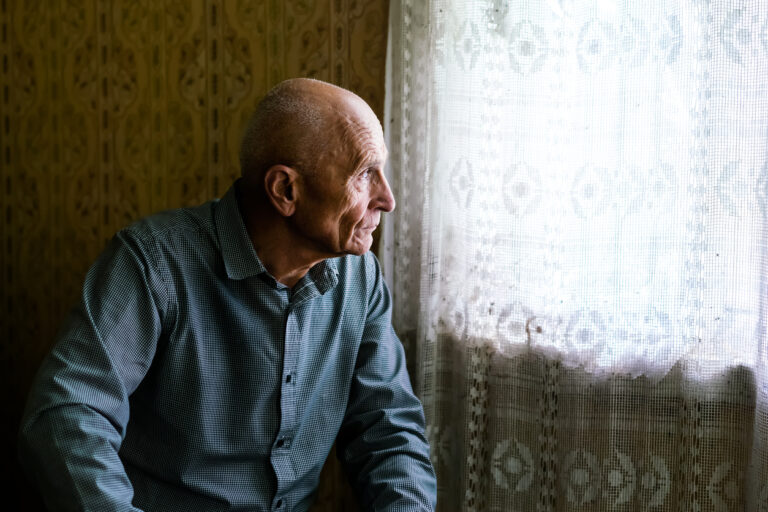‘One is the Loneliest Number’. ‘Only the Lonely’. ‘All By Myself’. There’s no shortage of pop culture references to the condition we, often dismissively, label loneliness. Being lonely can be decidedly miserable and, commonly, damaging to one’s mental and physical health.
As we age, the specter of loneliness can become crippling as even the most active socialite can find themselves companion-less and longing for human interaction during their senior years. Widows, widowers, seniors who have children living abroad, seniors living with trauma. All are at high risk of developing serious health concerns.
According to the experts at nursenextdoor.com, “social contact decreases as people age, often due to lack of mobility, retirement and other reasons leading to higher rates of senior social isolation. Studies also show that loneliness is a huge risk factor for depression, heightening the sense of unhappiness and worthlessness.”
The Centres for Disease Control and Prevention (CDC) flesh the issue out more by naming loneliness in seniors a “serious public health risk”:
“Loneliness and social isolation in older adults are serious public health risks affecting a significant number of people in the United States and putting them at risk for dementia and other serious medical conditions.”
Citing a 2020 report from the National Academies of Sciences, Engineering, and Medicine (NASEM), the CDC informs us that, “more than one-third of adults aged 45 and older feel lonely, and nearly one-fourth of adults aged 65 and older are considered to be socially isolated. Older adults are at increased risk for loneliness and social isolation because they are more likely to face factors such as living alone, the loss of family or friends, chronic illness, and hearing loss.”
Correcting these sobering statistics can be challenging, as modern society seems to value the contributions of seniors less and less each passing year. We often forget how vital our seniors were to the development of the modern conveniences and privileges we enjoy today, which can lead to senior concerns being ignored and individual seniors being left isolated and alone.
Locally, Age Concern Bermuda (ACB) is very much engaged in the campaign to alleviate loneliness in our senior population. Speaking on behalf of ACB, Hayley Francis-Cann, client services associate, offered a more homegrown perspective:
“Research has linked loneliness and social isolation to higher risk of various mental and physical conditions. These may include anxiety, depression, heart failure, high blood pressure, cognitive decline, self-harm, and others. ACB has seen increased numbers of isolated seniors throughout the pandemic and hope to support these individuals through programmes and initiatives that encourage safe re-integration into the community.”
Quiet as it’s kept, Bermudians value their individual independence quite highly, and that can, ironically, lead to loneliness in the twilight years. Ms Francis-Cann expounded on another unavoidable impact of the pandemic on seniors who live alone:
“There are many seniors that are capable of independence and desire to care for themselves as they age. It can be important to maintain a steadfast routine that includes a mix of chores, exercise and social activities. Being forced to self-isolate disrupted many routine activities for independent seniors, including grocery shopping, seeing friends and family, banking, and many other social outlets.”
As a return to pre-pandemic normalcy continues to forge ahead, ACB plans on tackling the menace of senior loneliness head on.
“ACB will be introducing programming specific to combating social isolation through our client service team in the new year. We are dedicated to supporting our elders in returning to normal routines following the pandemic. We also offer an engaging and enriching education series for seniors that want to learn more about caregiving supports, financial literacy, and legal aid. Additionally, our member affiliate programme offers many benefits, including discounts on a number of local services, shops and programmes.”
ACB also encourages seniors to create community amongst themselves; employing creative programming that connects volunteers with seniors in the community who would otherwise be isolated, and therefore at risk of the aforementioned loneliness related maladies.
“At ACB we have a programme called seniors helping seniors. Our volunteers, the majority of whom are retirees, connect with seniors that need a community safety net, social support, and information about supporting their quality of life. This is a popular programme, and we are always looking for more volunteers. Not only do the volunteers have the opportunity to make an impact on others, but they also are impacted by way of healthy socialisation, training, and having the opportunity to be a part of impactful change.”
Volunteering to become a part of a social safety net for other seniors is an amazing way to keep from falling into a loneliness-induced depression, but how can the rest of us support the seniors in our neighborhoods? Ms Francis- Cann offered some easy tips:
“Continue to periodically check on the seniors in your life, and invite them to meaningful social events and activities they enjoy. It is important for our seniors to feel supported by family and the people in their social networks – no matter the circumstance. A brief phone call, visit, invitation, or letter in the mail can go a long way to improving someone’s mood, and overall motivation to carry out daily tasks.”
This is good old-fashioned wisdom. A simple thing like dropping a letter into a senior’s mailbox can completely lift the effects of loneliness, and give an uplifting, warm feeling of nostalgia to a senior who might be feeling worthless and forgotten.
Ms Francis-Cann closed with a vital call to always honour our seniors for the collective strength and resilience they’ve instilled in us all.
“Bermuda is a small, but strong knit community that has collectively gone through a difficult and isolating time in our history. We, at ACB, urge you not to forget about our seniors. This country, its heritage, and our vibrant culture is able to withstand the test of recent challenges because of their impact and contribution to our collective story.”

